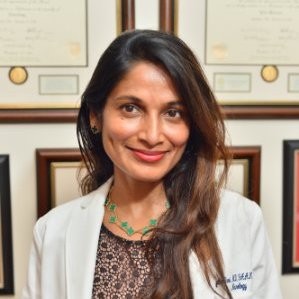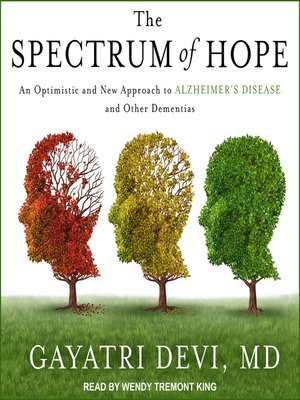(Aug 11, 2023) Ever since the legendary American jazz and traditional pop singer Tony Bennett was diagnosed with Alzheimer’s in 2016, his New York based physician Dr Gayatri Devi has been in spotlight. The iconic star passed away last month at the age of 96. Throughout his illustrious career, he won an impressive 20 Grammy Awards, and two Primetime Emmy Awards leaving behind an indelible mark on the world of music. Under Devi’s seven-year-long treatment his spark for music never died.
She was not just his neurologist but acted as a bridge between him and his worried fans who constantly sought inputs on his health from her. The Indian American physician used this spotlight to not just talk about Bennet’s condition but also to bring about a positive change by creating awareness about the disease that affects 1 in nine adults above the age of 65 in the United States according to the Alzheimer’s Association‘s estimates.

Dr Gayatri Devi
The director of the New York Memory and Healthy Aging Services and an attending physician at Lenox Hill Hospital, Devi is multi board-certified in neurology, psychiatry, brain injury, behavioural neurology and pain medicine. In her three-decades-old career, her focus has been on brain health, concussions, menopause related memory loss, Alzheimer’s and other dementias. She has recently published her new book ‘Spectrum of Hope: An Optimistic and New Approach to Alzheimer’s Disease and Other Dementias’ rewriting the existing narrative of the medical condition.
Life can be fulfilling despite Alzheimer’s
Just because someone has been diagnosed with Alzheimer’s, it doesn’t take away all the incredible gifts that they have to offer us.
Devi told CNN, the day Bennet passed away, giving an account of how the legendary singer had been singing and performing despite his ailment – inspiring people with Alzheimer’s to remain active.
Emphasizing on the stigma that the society imposes on people with this health condition, the neurologist remarked, “When you have a passion and when you have a gift that you can give the world, then you should be allowed to do it, whether or not you have Alzheimer’s,” she said.
As far as her nonagenarian patient was concerned, although Bennet did not remember day to day details of the treatment process, he spent time doing the thing he loved most in the world – singing. It helped him fight his condition by keeping his brain lively and active. He had even completed a new album with Lady Gaga after his diagnosis, giving hope to many sufferers that despite their conditions they can lead a fulfilling life.
Glimmer of good news
Dr Gayatri Devi has authored several books, the most recent being – ‘Spectrum of Hope: An Optimistic and New Approach to Alzheimer’s Disease and Other Dementias’ in which she ventures to rewrite the story of Alzheimer’s.
Through her book she attempts to change the outlook of more than six million Americans with Alzheimer’s and other dementia, and the perception of their families, well-wishers and caregivers, highlighting that the condition is not an end to happiness.
Devi’s uplifting narrative in the book demonstrates that most Alzheimer’s patients continue to lead fulfilling lives within their communities. They remain actively engaged, babysitting their grandkids, running businesses, serving clients, and participating in various aspects of life.
Devi has woven her patients’ narratives, skilfully humanising the science behind Alzheimer’s. The book delves into areas like sexuality, genetics, disclosing the diagnosis publicly, and even creating a bucket list of future goals.
As a physician taking care of patients and dementia, exploring how a field that many consider depressing has given me joy, solace and fulfilment over all these years.
The Global Indian writes in her book’s intro
The neurologist has attempted to change perspectives by redefining Alzheimer’s as a spectrum disorder like autism, encouraging people worried about memory impairment to go for diagnosis as early detection can be a game-changer. “Just as baseline colonoscopy, and baseline mammogram, people above the age of 50 should have a baseline brain evaluation which should include a map of the brain’s strengths and weaknesses so that down the road if there’s a problem, the intervention is earlier. The earlier we intervene the better is the response to treatment.”

Audio book cover
Born to be a doctor
Dr Gayatri Devi was born and raised in India. She comes from a family where not just her father but also her grandfather and great grandfather were physicians. Dreaming to follow their footsteps, Devi had inclination towards neurology since the time she was nine. She went on to pursue her MD from Grace University, Indiana and MS in Narrative Medicine from Columbia University.
Losing her mother and sister to neurological illness gave her the impetus to devote her life to neurological treatment and innovative solutions. “Losing my extraordinary sister and my amazing mother to neurologic illness and helping my devoted caregiver father is my enduring inspiration to innovate. I love educating folks on brain health, both through my books and via media outlets,” she writes in a website.
Using her innovative bent of mind, looking at medical problems with fresh perspectives, and applying research to already available information, Devi has also published several research papers.
In the world of treatments and service
Always an exceptional student, during her MS residency in Narrative Medicine at the Columbia University, she was selected as chief resident of the institution owing to her exceptional academic records.
Indebted to her alma mater, Devi mentioned in an interview with Columbia School of Professional Studies, “Narrative Medicine program at Columbia University helped me to be able to listen to patients without a pre-conceived notion of what illness was.”
At just 29, she assumed the position of director at the Long Island Alzheimer’s Disease Assistance Center after completing seven years of post-graduate residency training at Downstate and Columbia University. She went on to serve as assistant professor of neurology at Columbia University, and later also served as a clinical associate professor of neurology and psychiatry at New York University.
For her research contributions and community outreach, Devi was selected to be a fellow in both the American Academy of Neurology and the American College of Physicians.
In her other notable past positions, she has served as the clinical core co-director at the Taub Alzheimer’s Disease Research Center at Columbia, held the presidency of the American Medical Women’s Association and the National Council on Women’s Health.
In her current capacity as a neurological consultant, she provides valuable expertise to both the New York State Committee for Physician Health and the NFL Players Association. Additionally, she holds a position on the Board of Overseers of School of Professional Studies at Columbia University.
Having resided in New York City for more than three decades, she is actively involved in community affairs, serving as a member of the NYC Parks Enforcement Patrol Mounted Auxiliary. Dr Gayatri Devi’s exemplary work has earned her numerous awards and accolades.
- Follow Dr Gayatri Devi on LinkedIn
Also Read: Dr GV Rao: The ‘living legend’ of Gastroenterology



